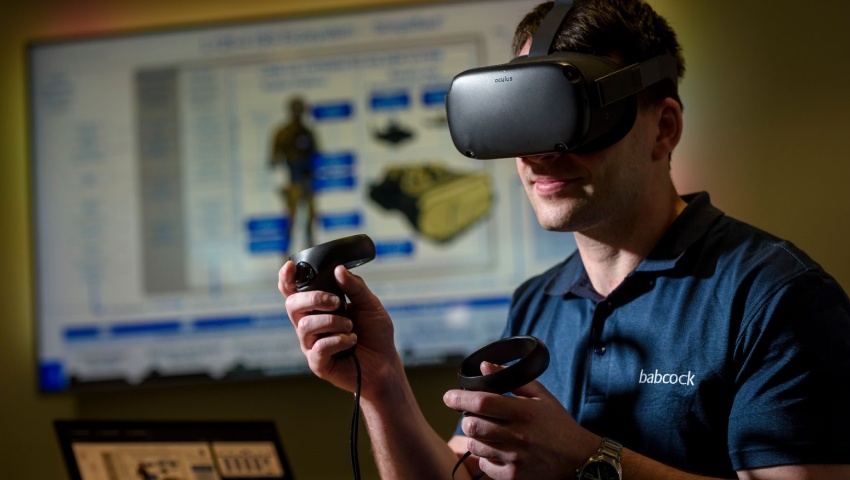Babcock Australasia has pledged the company’s ongoing support for Australian university graduates by signing a memorandum of understanding (MoU) with the University of South Australia, which hopes to expand research and job opportunities for the university’s graduates.
To continue reading the rest of this article, please log in.
Create free account to get unlimited news articles and more!
The MoU was signed by Babcock Australasia’s chief executive David Ruff and the vice chancellor of the University of South Australia Professor David Lloyd at Babcock’s Regional Support Centre based in Adelaide.
The pair were joined by Minister for Innovation and Skills David Pisoni and executive director, defence and space at Defence SA Reg Carruthers.
It is hoped that the MoU will support the development of technology for the Australian Army’s LAND 125 Phase 4 Integrated Soldier System (ISS).
The ISS aims to deliver an integrated system of kit and equipment that maintain the Australian soldier for up to 72 hours in the battlespace without resupply.
To achieve this, Babcock Australasia hopes to create a stronger workforce and research funnel by supporting job prospects for graduates as well as postgraduate research and technology research for students at the University of South Australia.
Mick Burgess, head of business development at Babcock Australasia, noted that the announcement will support sovereign Australian industry capability (AIC).
“Babcock’s partnership with UniSA strengthens our commitment to research and development being conducted in Australia in areas that will generate the best outcome for Defence,” Burgess said.
“As a result of the MoU, Babcock will able to leverage key research being undertaken by UniSA for LAND 125 Phase 4 in the areas of human factors, cognitive and systems neuroscience, interactive and virtual environments, and advances in wearable computing and displays.
“These and other research areas will contribute strongly to the spiral development of technologies and their use by the future Australian soldier.
“Babcock actively works to establish long-term partnerships with the local business community, works with Indigenous-owned and operated businesses, and provides backing for STEM initiatives in schools, TAFEs and universities.”
Matt Opie, director of defence and space at the University of South Australia, outlined that the MoU was demonstrative of why the university ranks first in Australia for industry engagement.
“In this case, the research we are undertaking in neuroscience, wearable computers, virtual and interactive technology, and the human factors involved in Defence, will all help develop the ideal systems for Australian soldiers,” Opie said.
“This partnership is an excellent example of how UniSA works closely with the Defence industry to meet its needs, help solve the challenges it faces, and deliver tangible and practical outcomes.”
Burgess continued, noting that innovating new capabilities for the Australian warfighter were front of mind in developing their new ISS.
“Innovation and sovereign capability are at the forefront of Babcock’s bid to equip Australian soldiers with next generation technology as part of LAND125 Phase 4,” Burgess said.
“The result is a robust model that delivers sovereign capability through local facilities, as well as domestic supply chains that are integrated, resilient, reliable, and secure.”
[Related: Babcock Australasia delivering genuine maritime sovereign capability]

 Login
Login







